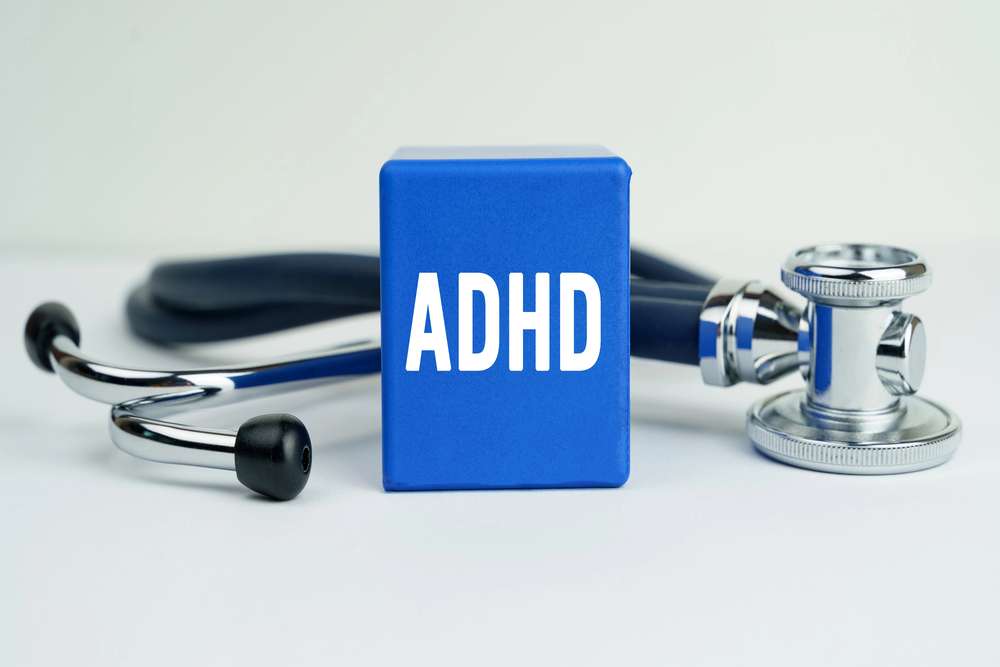2025-08-16

ADHD isn’t just a childhood condition. Many adults live with undiagnosed ADHD for years, navigating symptoms that quietly disrupt their focus, work performance, and personal relationships.
If you’ve ever wondered why you struggle with organization, forgetfulness, or constant mental restlessness, you’re not alone. Understanding how to get diagnosed with ADHD in adults can be the first step toward clarity and relief.
An accurate diagnosis opens the door to targeted treatment, self-understanding, and healthier coping strategies. But the road to that diagnosis often involves more than a single doctor’s visit. This article breaks down what adults can expect from the evaluation process, from the earliest signs to comprehensive assessments, while offering reassurance and guidance along the way.
Symptoms of ADHD in adulthood often differ from childhood presentations. Hyperactivity might look more like restlessness or difficulty relaxing. Many adults experience persistent forgetfulness, missed deadlines, trouble focusing in conversations, or chronic disorganization.
These behaviors can lead to work stress, relationship strain, and low self-esteem—but they’re not just personality quirks. If you notice a consistent pattern that interferes with your quality of life, it may point to something deeper.
Understanding how to get diagnosed with ADHD in adults means learning to recognize these subtle signs and knowing when to reach out for professional support.
Most adults begin this journey by reaching out to a psychologist, psychiatrist, or clinical neuropsychologist who has experience in diagnosing ADHD. Unlike a physical test that might involve a blood draw or imaging, ADHD diagnosis relies heavily on clinical interviews, history-gathering, and observation.
You’ll likely start with an initial consultation. During this session, the provider will listen carefully to your concerns and explore when your symptoms first began. For a diagnosis to meet the official guidelines, symptoms must have been present before age 12, even if they weren’t recognized at the time.
Some people recall being called “daydreamers” or “troublemakers” in school. Others may not have been flagged at all but recognize the patterns in hindsight.
Your provider may ask questions about your academic, social, and professional history, as well as how your current symptoms impact your work, relationships, or overall quality of life. This conversation often feels like a mix of detective work and self-discovery.
In the United States, ADHD diagnosis follows the criteria outlined in the Diagnostic and Statistical Manual of Mental Disorders (DSM-5). For adults, a diagnosis typically requires experiencing at least five persistent symptoms of either inattention or hyperactivity-impulsivity for more than six months.
These symptoms must be present in at least two settings, such as home and work, and interfere with your ability to function. This helps distinguish ADHD from stress-related forgetfulness or occasional disorganization.
It’s not uncommon for adults to express relief during this process. Finally, there’s a name for the lifelong challenges they’ve faced. There’s also comfort in knowing those challenges weren’t due to laziness or lack of discipline, but rather a neurological difference that affects how attention and motivation work in the brain.
A thorough evaluation may involve multiple tools. These could include self-report questionnaires, behavior checklists, and structured clinical interviews.
Many providers use standardized instruments like the Conners Adult ADHD Rating Scale or the Adult ADHD Self-Report Scale (ASRS). These will help measure symptom severity and compare responses to normative data.
You might also be asked to complete surveys about your mood, anxiety, or sleep habits. This is because conditions like depression or anxiety can mimic or worsen ADHD symptoms. Ruling out or identifying other mental health conditions makes sure you receive the right treatment plan.
When possible, your provider may gather collateral information from someone close to you, such as a parent, spouse, or sibling. These third-party perspectives can add helpful context, especially when recalling childhood behavior.
However, this step depends on your comfort level and may not be necessary in every case.
Some adults undergo neuropsychological testing as part of the evaluation. This can be especially useful when symptoms overlap with other conditions, or when additional clarity is needed.
Neuropsychological testing typically assesses areas like memory, attention, executive functioning, language, and processing speed. These tests aren’t about passing or failing.
Instead, they offer a snapshot of how your brain works in real time. For example, a person with ADHD may struggle with sustained attention during repetitive tasks or show variability in reaction times.
The results from these tests help confirm or refine a diagnosis and can guide more personalized treatment plans. For adults pursuing workplace accommodations or academic support, written documentation from neuropsychological assessments can also be beneficial.
Many adults grew up during a time when ADHD wasn’t well understood, especially in women, whose symptoms may appear more internalized.
Girls with ADHD are more likely to present as inattentive or dreamy rather than hyperactive, which leads to underdiagnosis. These patterns can persist into adulthood, with individuals chalking up their challenges to personality traits or life circumstances.
It’s also common for adults to seek evaluation after a major life transition. Becoming a parent, starting a new job, or managing multiple responsibilities may push coping mechanisms to the limit, making symptoms harder to ignore.
By this stage, people have often developed elaborate systems, including lists, alarms, sticky notes, to mask their struggles. While these tools can help, they don’t address the root cause. An official diagnosis creates space for deeper support, including therapy, coaching, or medication.
Receiving an adult ADHD diagnosis can be both validating and emotional. For many, it feels like the missing puzzle piece that explains years of internal frustration. Nevertheless, it also marks the beginning of a new journey – one focused on understanding and supporting how your brain works best.
Treatment for adult ADHD may involve behavioral therapy, coaching, medication, or lifestyle adjustments. Cognitive-behavioral therapy (CBT) is especially helpful for challenging negative thought patterns and building new skills around organization, time management, and emotional regulation.
Medication, when prescribed, is often used in combination with therapy and may include stimulants or non-stimulant options, depending on individual needs. Sleep hygiene, exercise, and nutrition also play a role in managing symptoms effectively.
Working with professionals who understand ADHD in adults is key. They can help you set realistic goals, identify strengths, and reduce the shame that often surrounds the diagnosis.
The process of getting diagnosed with ADHD as an adult requires patience and self-compassion. It involves digging into your personal history, examining long-standing patterns, and trusting the clinician’s guidance. While it may feel vulnerable at times, this journey can also be empowering.
You’re not starting from scratch. You’re starting from experience – and now, with insight.
Thought Wise LLC specializes in comprehensive ADHD evaluations for adults. We recognize how deeply ADHD can impact attention, memory, relationships, and daily routines. Our neuropsychological assessments are designed to give you clear, evidence-based answers so you can move forward with confidence.
With flexible telehealth options and compassionate care, we’re here to support you every step of the way. If you’ve been wondering about your attention challenges or feel like something just hasn’t clicked, we invite you to reach out. Understanding your mind is the first step to thriving with it

ThoughtWise Clinical Psychology and Neuropsychology provides quality services that guide treatment, enrich life, and enhance our overall mental health and cognitive abilities in Jacksonville and throughout the state of Florida. On their blog, they share insightful tips on managing and improving mental health and clarity in day to day life.

Contact us today to see if Thought Wise and our clinical psychologists are the right fit for your needs.